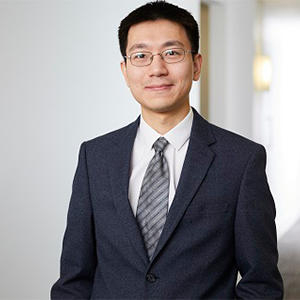I joined Hoffmann Eitle in 2017 as a trainee patent attorney after completing a PhD in wireless communication. My interest in cutting-edge technologies led me to this profession, and I chose Hoffmann Eitle largely because of the firm’s diverse international client base which includes industry leaders across various engineering disciplines. Since joining the firm, I’ve had the opportunity to handle applications on some of the most innovative and relevant technologies in my areas of interest, liaising directly with the clients under the supervision of my supervising partners.
Hoffmann Eitle is one of the largest pan-European intellectual property law firms, having offices in 7 different cities over 5 different countries, the largest office being in Munich. I work in the London Office which has a close-knit work environment with around 25 employees. The firm also provides the unique opportunity of allowing new trainees to spend up to 6 months training in the Munich office.
As a trainee patent attorney, my work involves handling cases under the close supervision of my supervising partners. Working with more than one partner increases the variety of work I get and allows me to see different working styles.
Most of my day-to-day work involves liaising with clients and writing to the patent office explaining why a particular invention is novel and inventive over the prior art and therefore deserves to be granted a patent. I also frequently write new patent applications, and thanks to the firm’s diverse client base, I have already drafted several patent applications in a number of interesting areas, such as imaging processing, advance driver assistance systems, telecoms, ocular imaging, and power engineering. Drafting is intellectually challenging on many levels because it requires you to not only understand all of the technical details behind an invention, but also claim that invention using the clearest possible language which does not allow a potential infringer to easily design around the claim.
Sometimes, a client’s granted patent is opposed by a competitor and I am tasked with preparing arguments to defend the patent. On other occasions, I have prepared arguments opposing the patent of our client’s competitor, explaining why that patent should be revoked. Many of these cases are eventually settled by oral proceedings, which are one or two-day hearings where the different parties plead their case orally before the patent office. These hearings are particularly intense because they require you to think on your feet and respond to the arguments of the opposing party in real-time, a skill which requires significant experience and practice.
In terms of training for the UK and European patent attorney qualifying examinations, the firm provides substantial support for its trainees and pays for various training courses. So far, I have passed the foundation British and European qualifying exams. The main exams are significantly more challenging and require many months of study.







